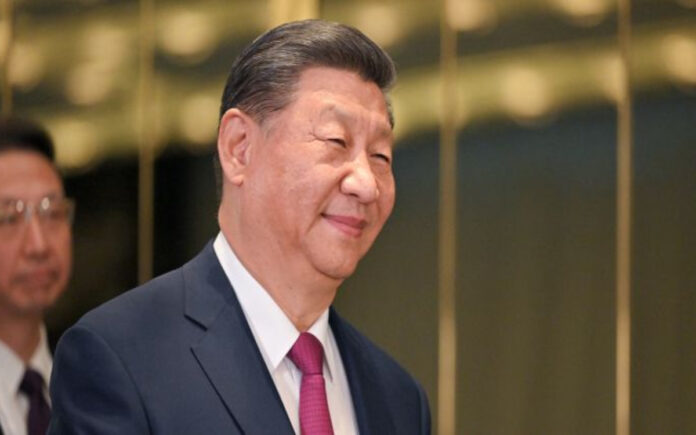Beijing: China’s President Xi Jinping has emphasized the importance of robust border, sea, and air defenses to safeguard the country’s territorial sovereignty and maritime interests, according to a report from the official Xinhua news agency on Wednesday.
Xi highlighted that strong border, sea, and air defenses are crucial symbols of China’s sovereignty and vital for the nation’s development. Xinhua reported this statement from Xi during a collective study session of the Communist Party’s politburo on Tuesday.
These collective study sessions, held periodically, provide insights into the priorities and current thinking of China’s top political leadership. Following the July 2023 session on military governance, Xi appointed a new head of the armed forces overseeing China’s conventional and nuclear missiles. This appointment, made by Xi in his role as military commander-in-chief, was timed just before the 96th anniversary of the People’s Liberation Army (PLA) on August 1.
The June 2024 study session concentrated on party governance and corruption. In mid-July, the party expelled former Defence Minister Li Shangfu and former PLA Rocket Force Commander Li Yuchao for corruption.
Also Read | India’s Steel Ministry Calls for Probe into Cheaper Imports from China and Vietnam
Xi also stated, “We must coordinate the promotion of border, sea, and air defense construction and the economic and social development of border and coastal areas,” as reported by Xinhua. This statement precedes the 97th PLA anniversary.
Xi emphasized that China needs to enhance its technological capabilities and develop “new means and conditions” to strengthen its border, sea, and air defenses.
Also Read | Imran Khan, in Jail for a Year, Open to Conditional Talks with Pakistan Military
In line with these priorities, the Chinese government has increased its 2024 defense budget by 7.2%, maintaining a pace consistent with last year’s budget and significantly surpassing the government’s annual economic growth forecast.
Recent years have seen rising tensions over Taiwan, the democratically governed island that China views as its own, and in East Asia, particularly in the South China Sea, where Beijing and Manila have clashed over competing maritime claims. In response, the United States pledged $500 million on Tuesday to support the Philippines’ military and coast guard as a show of solidarity amid Chinese actions in the South China Sea.



